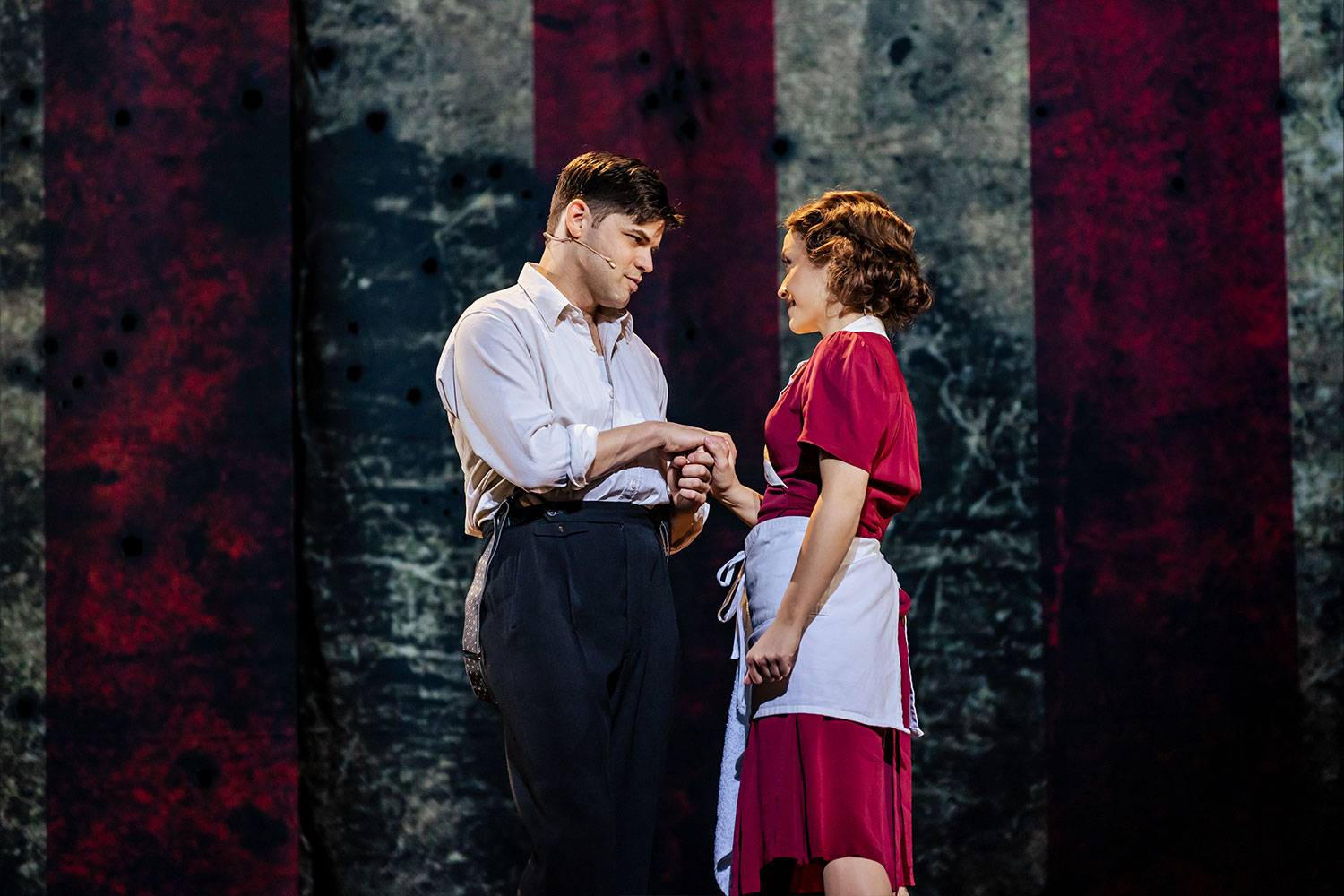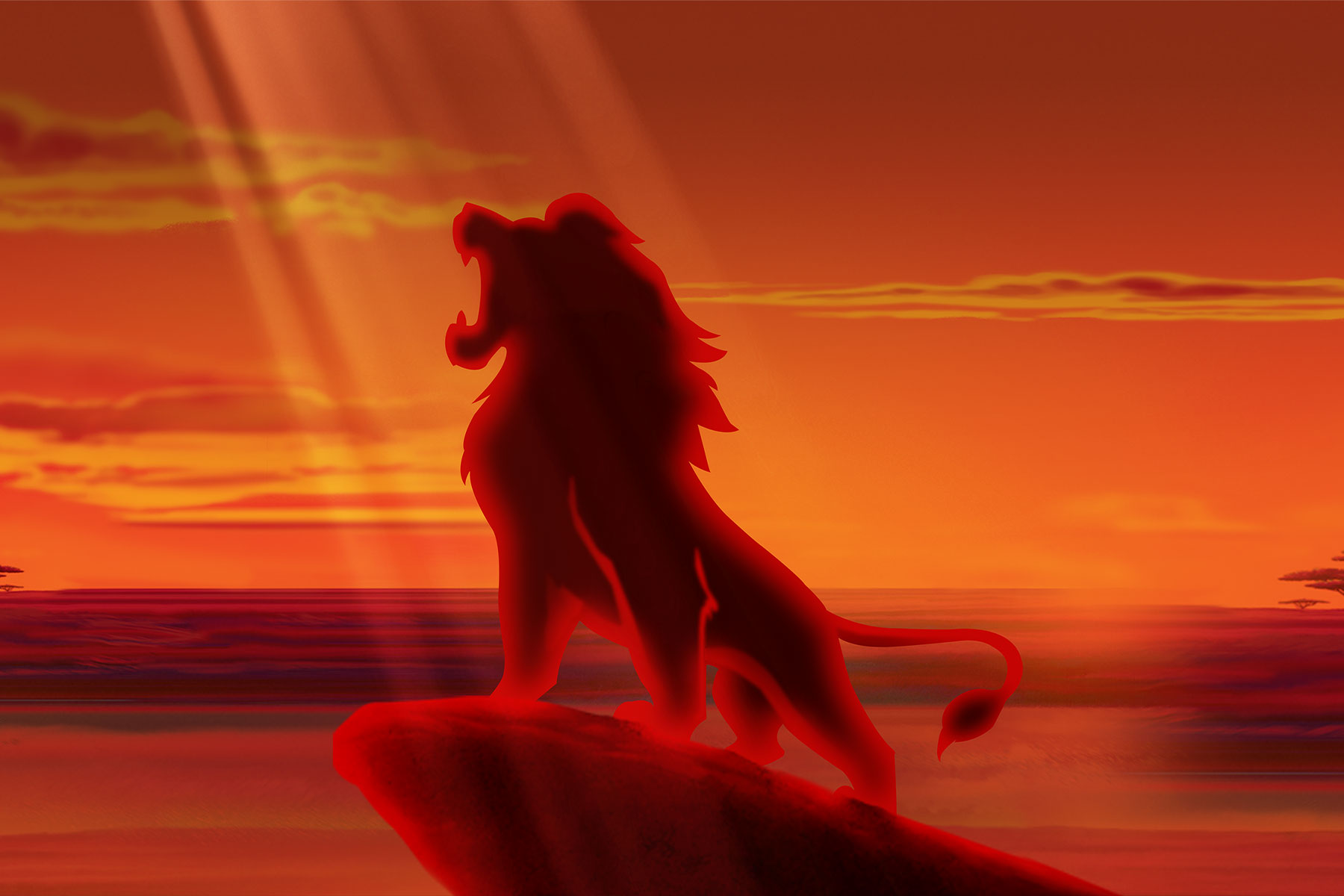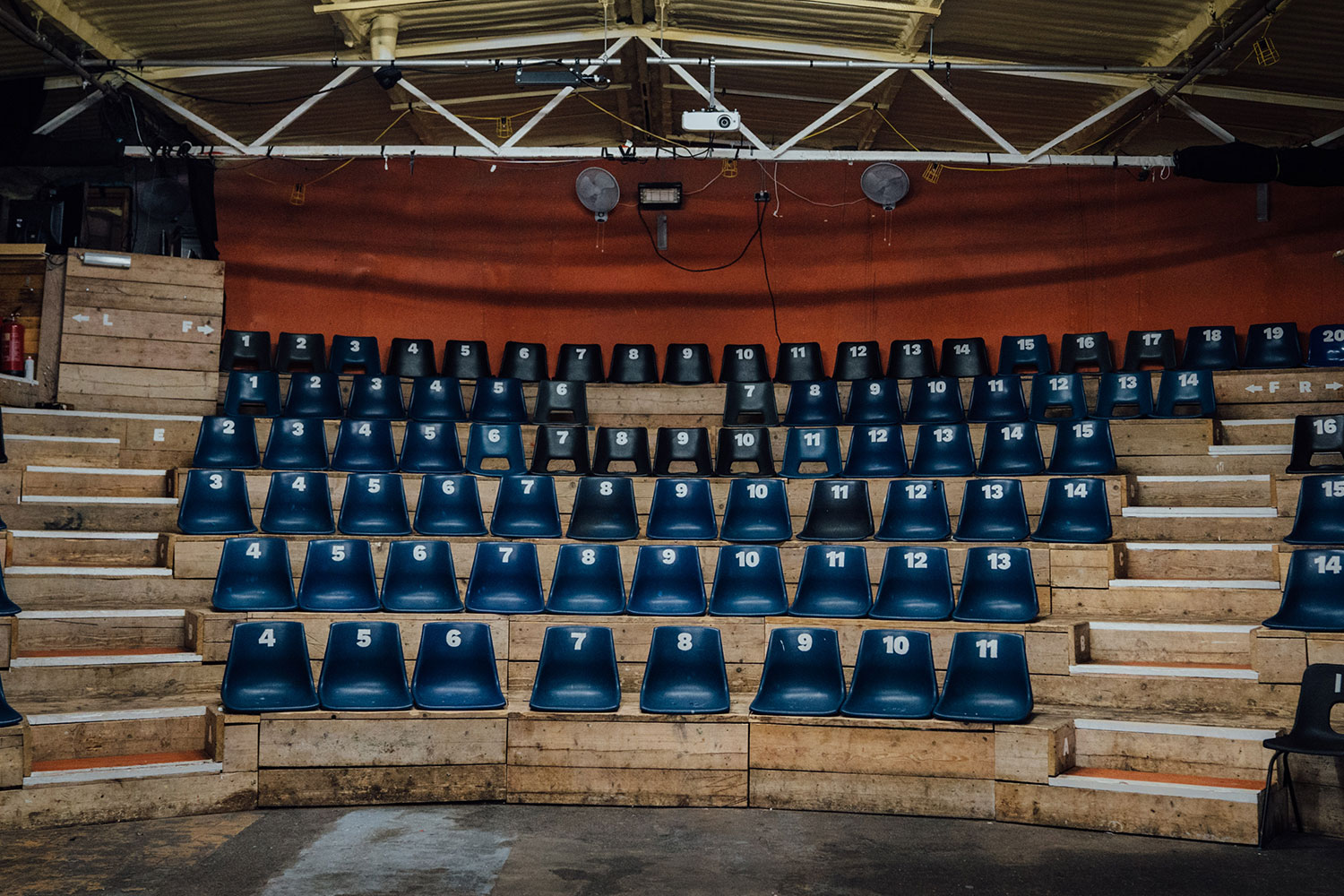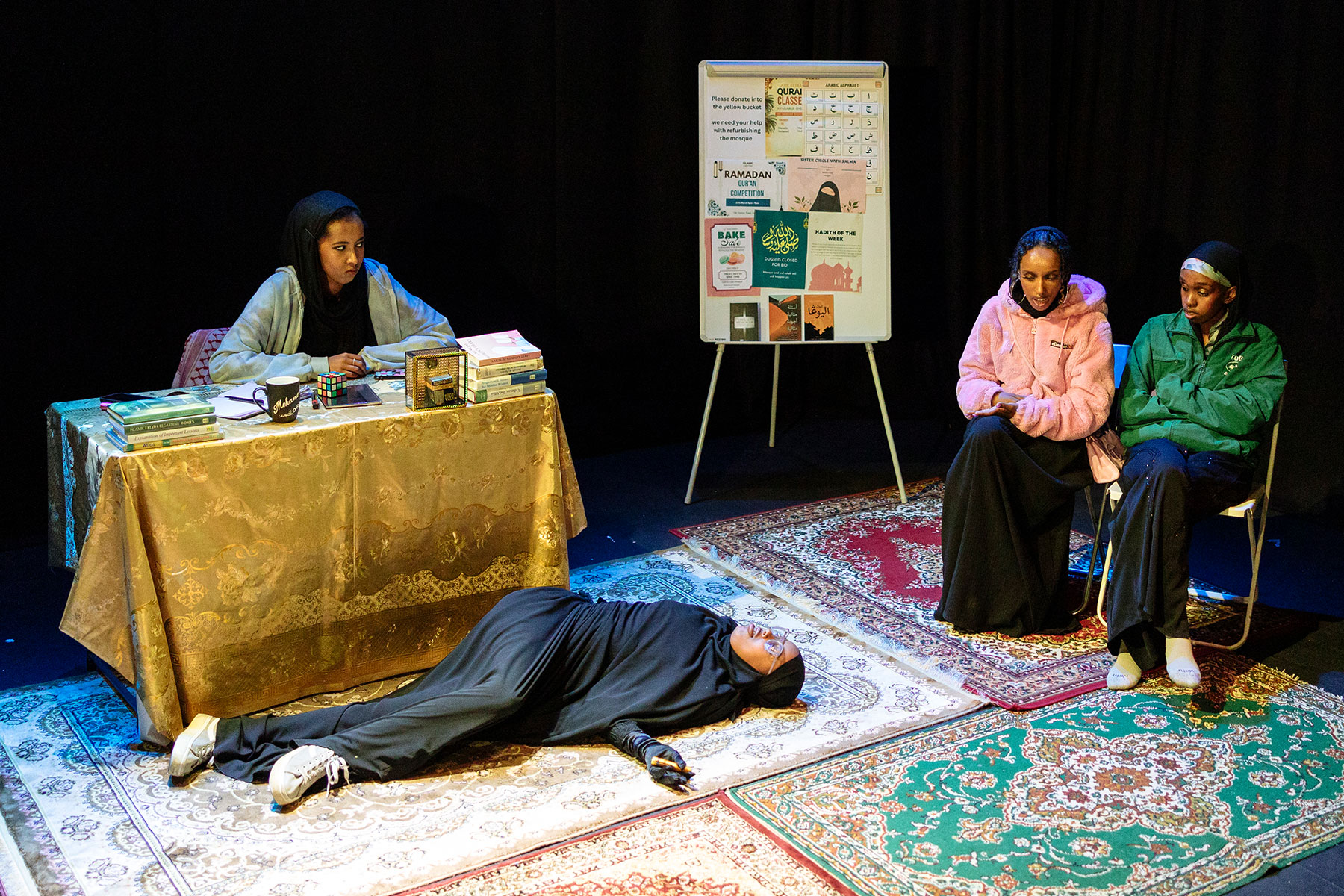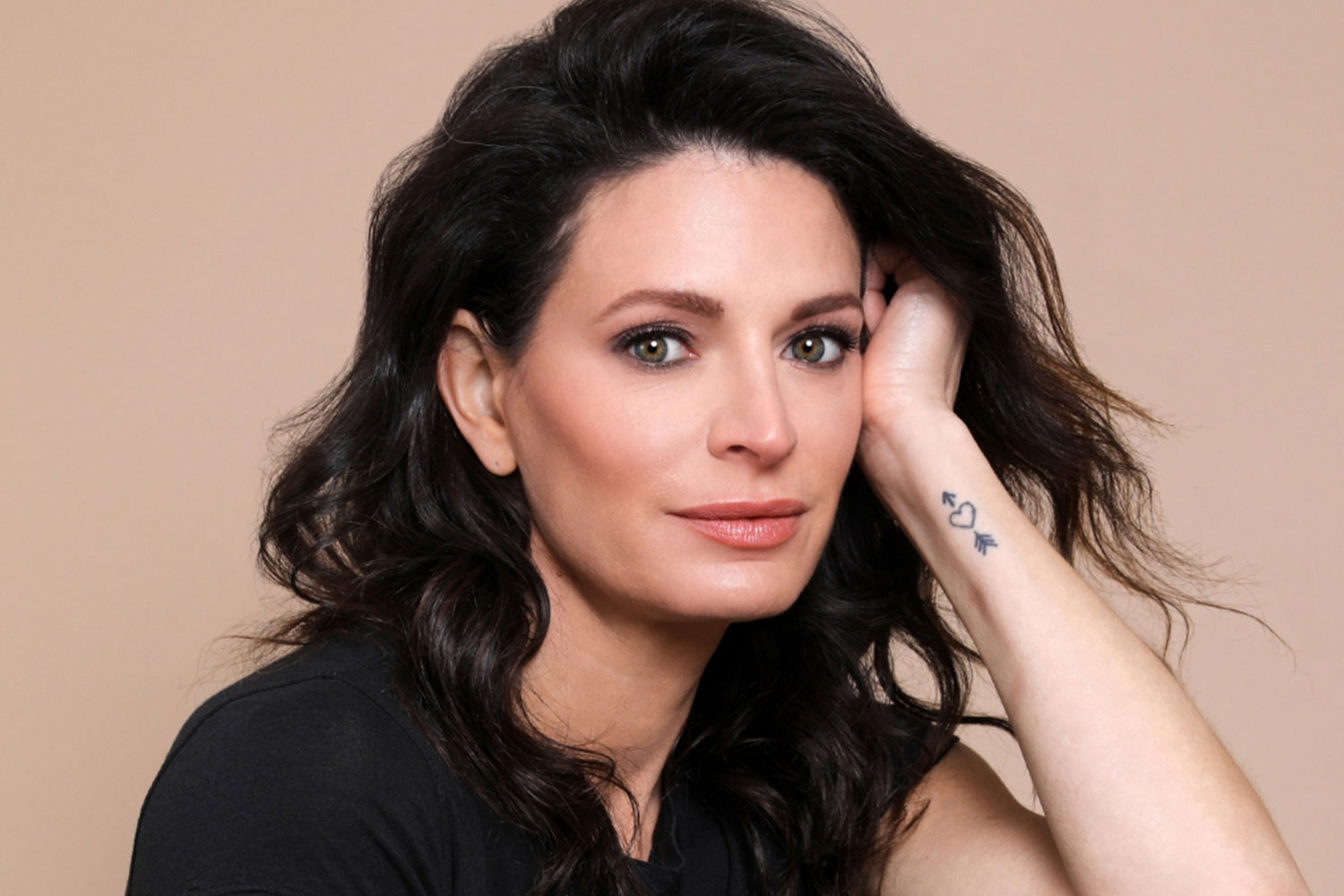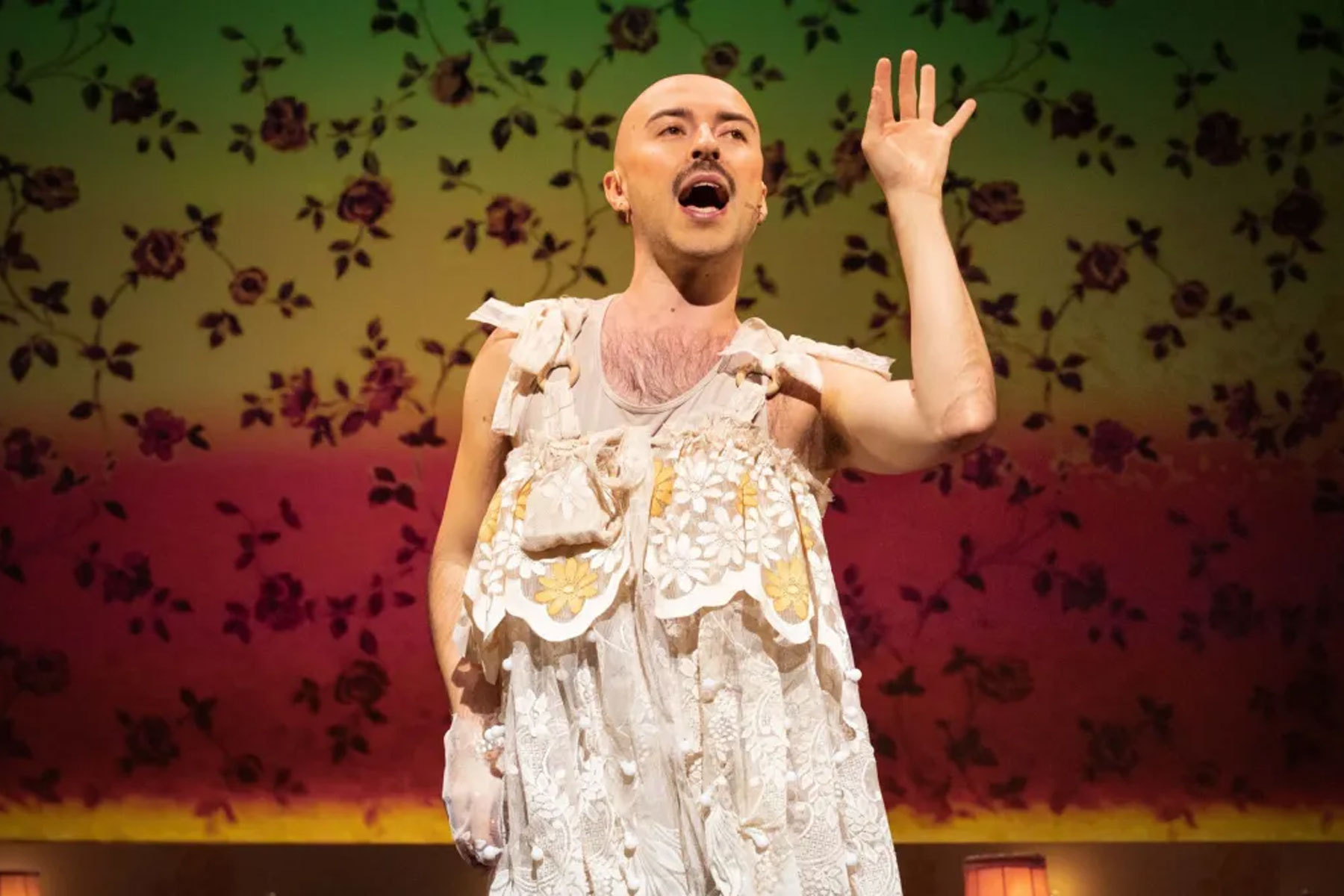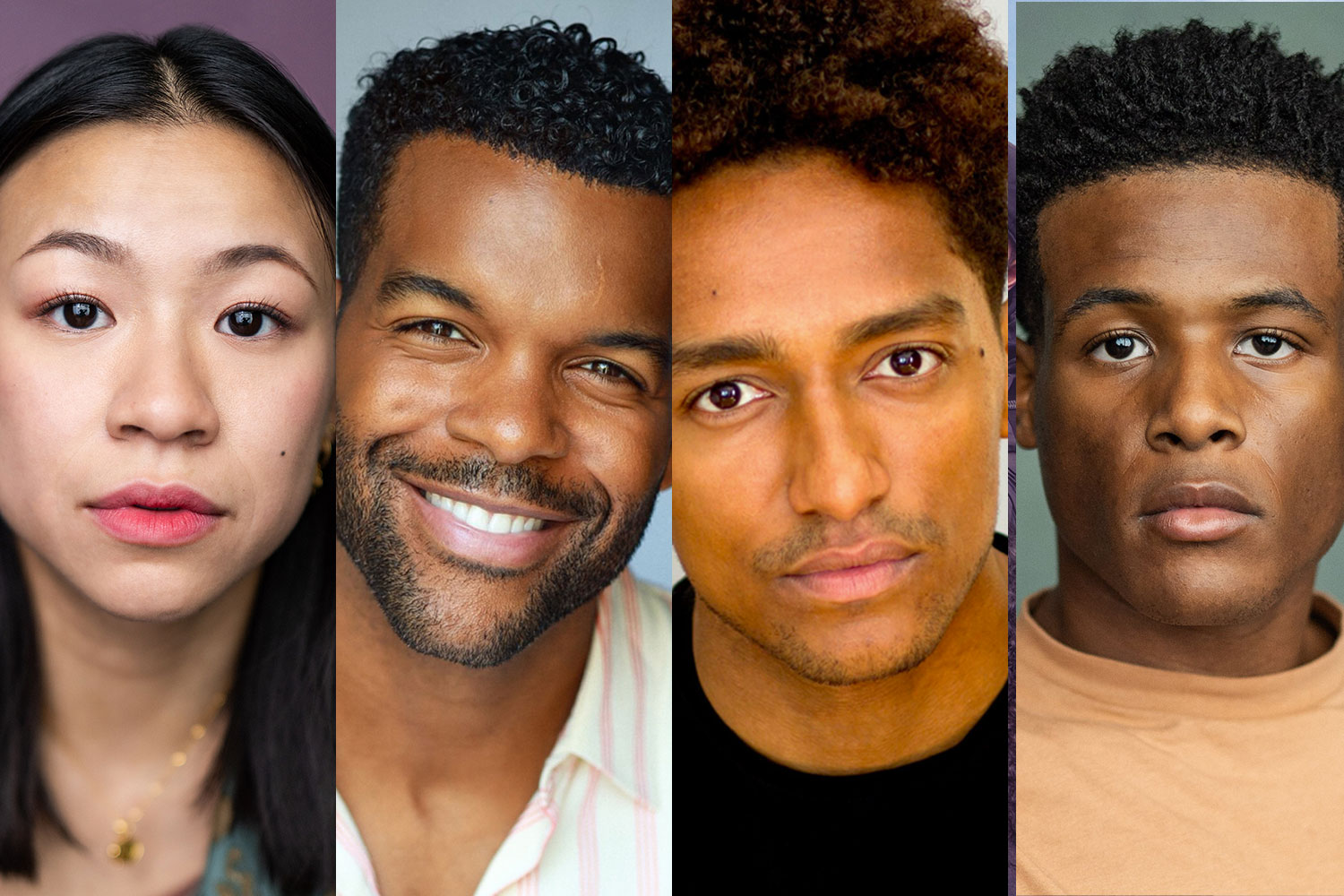Rockets and Blue Lights review – Winsome Pinnock's play comes to the National Theatre
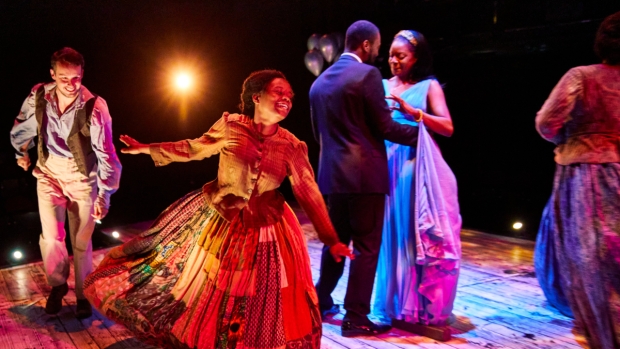
© Brinkhoff-Moegenburg
The opening image of Winsome Pinnock's new play is centred on a painting: JMW Turner's The Slave Ship, first exhibited in 1840, which shows a churning sea, a bright sunset, and a ship sailing away, leaving barely visible human forms in its wake, black hands rising from the waves. It was possibly inspired by the case of the slave ship Zong, which involved the mass murder of 130 enslaved Africans, flung overboard when the ship ran low on drinking water.
"Why does he have to make something so ugly, beautiful?" asks Kiza Deen's Lou, an actress who has been signed up to play one of the drowned slaves in a new movie called The Ghost Ship. That's the first of the pertinent, troubling questions in this ambitious, complex play which moves between history and the present, exploring the legacy of slavery even on those who think they have been untouched by it.
It weaves scenes from the fictional film, with events from 1840, when slavery was continuing but under a secret flag, and when Thomas and his freed slave wife Lucy (beautifully played by Karl Collins and Rochelle Rose) are attempting to make a life in London. These mingle with incidents from today, as Lou encounters a school party who are studying the Turner painting as part of their attempt to understand slavery.
This intricate structure is beautifully held together both by the poetry and quality of Pinnock's writing, full of different ghosts, and by a production by Miranda Cromwell that embodies the link between past and present, letting scenes flow into each other, just as the past does the present, and allowing the actors to move with fluid skill between many parts.
It's a production full of marvellous images such as the moment in Annie-Lunnette Deakin-Foster's choreography when a 19th century ball and a 21st century smooch take place simultaneously, each throwing shades at the other. At another point Cathy Tyson (perfect and perfectly pitched in each of the roles she embodies) appears as the shade of Turner's mother, in a mermaid's tail, that flicks and flexes as she challenges his views.
On Laura Hopkins's plainly effective wood-planked set, water seeps across the boards, a physical metaphor for the rising tide of history, and for stories lost to the waves that can no longer be ignored. It allows, at the close, to an astonishingly beautiful and emotional coup de theatre.
The play, which had just a handful of performances at its original venue at the Manchester Royal Exchange before it was closed by Covid, arguably crams in too much. The story of the school party is underworked, and the second half loses the tightness of the first. But this is balanced by the sheer richness of narrative and theme it creates.
It manages to cover a huge amount of ground including the way that Lou can find fame as a Captain fighting aliens in a US TV series, but when she tries to make a film about the stories of slavery, she finds her part rewritten to include a nude scene and the "torture pain" that tellings of slavery so often contain. In one almost unwatchable and carefully staged scene, her character is punished and whipped, till the actress cannot bear it anymore; in fighting back, she is battling not only the depiction of history but a patriarchy that still oppresses her and deprives her of her voice.
The entire play argues that there isn't a direct distinction between the cruelties of the past and the improvements of the present: black people are still oppressed. Turner's story not the story of the slaves becomes the central theme of the film; mounting piles of equality legislation suggest black people are still treated differently. "A real person would not need so many laws."
Pinnock's achievement is to make such points amidst a densely woven tapestry of story that both conjures the ghosts of the past and makes them powerful and engrossing in a theatre, here and now.





